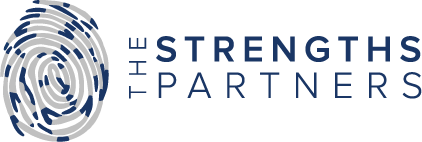
‘You shine TOO much’
‘You’re TOO quiet’
‘You’re TOO loud’
All statements I have heard recently from coachee’s and I have even heard myself (the too loud one, or too fast, too assertive).
When I hear this, I am often drawn back to a talk I listened to between Marcus Buckingham and Adam Grant at 2019 Wharton People Analytics Conference.
I love how Marcus shares that you are the best source of truth about your own strengths. It is not for someone else to tell you that you don’t have talent in a certain area.
The challenge may be that they are misapplied or misunderstood. Every talent and strength has a dark side, when it can go a little rouge on you and get you into mischief if you use it poorly.
Whilst having a common language for strengths is useful, we need to be careful not to stop someone from being their brilliant self. We don’t want to people to walk away thinking they need to be ‘less of themselves’.
Understanding the Feedback
Lets explore, when your boss says you ‘shine too much,’ it may imply several underlying concerns:
• Overshadowing Others: Your exceptional performance might be inadvertently overshadowing your colleagues, creating an imbalance in team dynamics. Maybe you are overshadowing them, and their status feels threatened.
• Perceived Arrogance: Your confidence and accomplishments might be perceived as arrogance or self-promotion.
• Disruption to Harmony: Your high energy and enthusiasm might disrupt the team’s harmony if not channelled appropriately.
It’s crucial to interpret the feedback with an open mind and seek clarification to understand the specific context and concerns behind the statement.
Seeking Clarification
Approach your boss to gain a clearer understanding of their feedback. Ask questions like:
“Can you provide specific examples of when you felt I was ‘shining too much’?”
“Is there a particular behaviour or action that you believe is causing this perception?”
“How can I better balance my contributions with the rest of the team?”
These questions demonstrate your willingness to understand and address the feedback constructively.
Reflect on Your Behaviour. Self-reflection and Self Acceptance is essential when faced with feedback about being ‘too much.’
Consider the following:
• Self-awareness: Reflect on your recent interactions and behaviour. Have you been overly assertive or dominating discussions?
• Impact on Team Dynamics: Assess how your actions might be affecting your colleagues. Are you unintentionally overshadowing their contributions or creating an environment where they feel less valued?
• Balance: Evaluate how you can balance showcasing your strengths while fostering a collaborative team environment.
• Recognize your strengths and the unique qualities that you bring to the table. Understand that being assertive, confident, or highly enthusiastic are not inherently negative traits.
• Authenticity: Reflect on whether changing your behaviour would compromise your authenticity. It’s important to be genuine in your professional persona.
Stand Your Ground with Respect
If, after reflection and discussion, you believe the feedback is more about your boss’s perspective than your behaviour, it’s important to stand your ground respectfully. Maintain professionalism and express your viewpoint without being defensive. For example, “I appreciate your feedback, and I’ve considered it carefully. I believe my enthusiasm and proactive approach are vital to my role and the team’s success.”
Provide examples of how your behaviour has positively impacted the team or the project outcomes. Demonstrating tangible results can help shift the perspective.
Look to seek external opinions, gather feedback from colleagues, mentors, or other leaders to get a balanced view by asking trusted colleagues for their honest opinions. Do they feel overshadowed, or do they see your behaviour as positive and motivating?
Leverage Your Strengths
While adjusting your behaviour, don’t diminish your strengths. Instead, find ways to leverage them constructively:
Several of the CliftonStrengths talent themes are naturally inclined to seek opportunities to shine and be recognized for their contributions. Here are some of those themes:
Achiever: Achievers thrive on accomplishment. They take pride in their hard work and enjoy setting and achieving goals, which often places them in the spotlight for their relentless drive and productivity.
Competition: Those with the Competition theme are driven by comparison and performance. They aim to be the best and enjoy winning, which often puts them in situations where they can shine and be recognized for their excellence.
Command: Individuals with Command are naturally inclined to take charge and lead. Their confidence and decisiveness often draw attention, making them shine in leadership roles.
Maximizer: Maximizers focus on strengths and excellence. They seek to transform something strong into something superb, and their drive for quality and distinction often makes their contributions stand out.
Significance: People with the Significance theme want to be seen as credible, professional, and successful. They seek to make a big impact and be recognized for their efforts, striving to be seen as important and influential.
Self-Assurance: Self-Assurance is characterized by confidence in one’s abilities. Those with this theme trust their judgment and seek to take risks, often shining through their self-reliance and decisive actions.
Activator: Activators are eager to turn ideas into action. Their ability to get things started and energize a team often puts them in the spotlight for initiating change and driving progress.
Woo (Winning Others Over): Individuals with Woo enjoy meeting new people and winning them over. Their outgoing and engaging nature makes them shine in social settings where they can build connections and influence others.
Each of these themes brings a unique way of shining and contributing to their environment. Recognizing and leveraging these strengths can help individuals excel and be acknowledged for their talents.
Consider professional development opportunities to enhance your interpersonal skills. Workshops or courses on emotional intelligence, communication, and teamwork can provide valuable insights and tools to better navigate feedback and team dynamics. Look at ways to invest in your talents and help regulate them. My favourite source of information (other than a coaching partner, of course) is the Mastery Monday articles.
Being told you ‘shine too much’ can be challenging, but it offers an opportunity for growth and improvement. Remember, the goal is not to dim your light but to ensure it shines in a way that illuminates and uplifts you and everyone around you. Take time to describe the power and edge of your unique talents, even share your report with others.




